

If you’re looking for reading recommendations, why not ask Warren Buffet?
After all, Buffett’s been known to read up to 1,000 pages per day. And no, that wasn’t a typo…
In fact, when asked for his #1 tip for success, Buffett famously told students to read 500 pages a day:
Read 500 pages like this every day. That’s how knowledge works. It builds up, like compound interest. All of you can do it, but I guarantee not many of you will.” – Warren Buffett on reading
(Fun Trivia: I’d heard this story a million times, but everyone always leaves out its incredible ending. One student in the audience DID take Buffett’s advice about reading. That student’s name? Todd Combs, aka the current Investment Manager of Berkshire Hathaway and the guy rumored to replace Buffett when he retires.)
Even today, Buffett is known for spending at least six hours of his day reading.
All this to say, we’d be wise to take Warren Buffett’s book advice. He makes it easy too; Buffett loves to sneak his favorite book recommendations into his investment company’s annual letters to shareholders.
Stuck on what my next book should be, I decided to do a little research, sort through those annual reports, and find which books Buffett recommended the most.
The result is 21 different Warren Buffett recommended books, and the list covers everything from basic to advanced investment strategies, and even nuclear war!
Let’s jump into the long list:
Two Recommended Books from Warren Buffett’s Teacher
Buffett’s investing teacher was a professor at Columbia University named Benjamin Graham. Graham was a successful investor in his own right, with a strong enough reputation that Buffett actually enrolled in Columbia Business School after he learned Graham was a professor there.
Throughout college, Graham taught Buffett his theories on investing. Apparently, he was eventually impressed enough with Buffett that he offered him a job at his Wall Street firm after graduation.
In an era when many viewed the stock market as wild gambling, Graham taught Buffett his methodical “value approach” to investing. This theory emphasized that investing in stocks was buying ownership in a business, and therefore the investor should be less concerned with wild changes in the price of a stock and instead more concerned with finding the underlying business’s true value. (And then using those wild changes in the price of stock as an opportunity to buy good businesses at a discount.)
Graham explains this approach in complete detail in the next two books recommended by Warren Buffet.
1. The Intelligent Investor by Benjamin Graham (Best for Beginners)
Warren Buffett famously describes this book as “the best book about investing ever written.” In The Intelligent Investor, Graham outlines the basics of his “value investing approach” that Buffett and many other successful investors have used.
Buffett first read this book when he was 19 years old, which means this book was likely the influence that convinced him to join Benjamin Graham at Columbia University and embark upon the most successful investing career the world has ever seen.
Of all the investments I ever made, buying Ben’s book was the best.” – Warren Buffett on The Intelligent Investor by Benjamin Graham
I’ve read this book myself, and it’s absolutely a classic. It’s worth noting that it was written in an era when index funds didn’t even exist, so it’s written for an audience of active investors who are looking to build their own portfolio of individually selected stocks. For that audience, it’s absolute an absolute must-read.
That said, even casual investors interested in a more passive approach to index funds will learn some cornerstone basics that guide ALL investment, such as the difference between investment and speculation, the basic impact of inflation on a portfolio, and the basic roles bonds should play in a well-balanced portfolio.
2. Security Analysis by Benjamin Garaham (The advanced textbook from Buffett’s teacher)
The second Warren Buffett recommended book from his teacher, Benjamin Graham. If The Intelligent Investor is the beginner’s book, Security Analysis is the advanced sequel.
First published in 1934, Security Analysis explains in thorough detail exactly how Benjamin Graham (and his colleague, David L. Dodd) went about actually valuing stocks to invest in. Obviously, this is a critical component for Buffett’s value investment style which basically comes down to:
- identify good businesses
- compare the selling price of those businesses with how much they should be selling for.
Security Analysis addresses that second half of Buffett’s investing approach. In fact, Buffett thinks so highly of this book that he actually wrote the foreword published in updated versions.
A bit of warning though. This is an in depth book. It reads like a textbook. In fact, I once read that it was the textbook in the investment class that Graham taught at Columbia Business School. Personally, I couldn’t get through it, but I also don’t believe in picking individual stocks anymore and instead prefer a 3 fund portfolio approach.
If you do plan on buying individual stocks, this is a required read before investing any of your hard earned cash.
Buffett’s Two Recommended Books for Beginners
If you’re new to investing, Warren Buffett has several more recommendations. (Aside from The Intelligent Investor, mentioned above.)
3. Where are the Customers’ Yachts? by Fred Schwed
In 2006, Buffett called this “The funniest book ever written about investing.” He said, “it lightly delivers many truly important messages on the subject.”
Where are the Customers’ Yachts is another book that will shatter beginning investors worldview of Wall Street. The book is written through the perspective of a New York visitor. Impressed with all the yachts he sees that are owned by bankers and stock brokers, he then asks where all the customers’ yachts have gone? Surprise, surprise, the customers couldn’t afford them…
This is a hilarious book that exposes Wall Street, and in particular, active stock trading, for the sham that it is. Where are the Customers’ Yachts drills home the unfortunate truth that most Wall Street advice is designed to make bankers and brokers richer, not the average investor.
4. The Little Book of Common Sense Investing: The Only Way to Guarantee Your Fair Share of Stock Market Returns by John C. Bogle
This is probably the best investing book for beginners on this list. Written by the founder of Vanguard, Jack Bogle explains in basic terms why most investors fail, why most mutual funds are rigged, and why low cost index funds are the easiest, simplest, and best way for building wealth over the long term.
(Jack’s position is what I’ve come to believe is true, and the same approach I follow with my own money, by the way.)
Warren Buffett agrees, too. In his 2014 letter, Buffett had this to say about Bogle’s classic book:
Most advisors, however, are far better at generating high fees than they are at generating high returns. In truth, their core competence is salesmanship. Rather than listen to their siren songs, investors – large and small – should instead read Jack Bogle’s The Little Book of Common Sense Investing.”
Buffett’s Four Recommended Books for Advanced Investors
Of course, while Buffett and I both agree that passive index funds are the best way 99% of the population should be investing (me included) this isn’t how Buffett actually made his fortune.
For a glimpse into some of the books that shaped Buffett’s investing perspective and helped him select which companies to invest in, here are some of his other favorite advanced investing books.
5. Common Stocks and Uncommon Profits by Philip A. Fisher
First published in 1958, Warren Buffett was an early reader of this book, and by all accounts it helped shape his investment style. In fact, the legendary investment author John Train once described Buffett’s investing style as 85% influenced by Benjamin Graham and 15% influenced by Phillip Fisher. (Other commenters have since said the ratio should be flipped, but that’s a debate for another day.)
In any case, Buffett has described Common Stocks and Uncommon Profits as a “very, very good book” and as recently as 2018 said that the “Scuttlebutt” technique that Fisher outlines in this book is a still a good way to invest.
6. Investing Between the Lines: How to Make Smarter Decisions by Decoding CEO Communications by L.J. Rittenhouse
Buffett is famous for placing a huge importance on the trustworthiness of businesses. In his eyes, a good management team is just as important (if not more so) than the business’s numbers on paper.
So it’s perhaps no surprise that a book devoted entirely to measuring the trustworthiness of businesses (and its potential impact on investment returns) caught Buffett’s eye.
7. Warren Buffett’s Ground Rules: Words of Wisdom from the Partnership Letters of the World’s Greatest Investor by Jeremy Miller
This book is written by an investment advisor who analyzed all the letters Buffett wrote to his partners in the early days of Buffett’s investment career, from around 1956 to 1957.
In his 2015 letter to shareholders, Buffett said:
Mr. Miller has done a superb job of researching and dissecting the operation of Buffett Partnership Ltd. and of explaining how Berkshire’s culture has evolved from its BPL origin. If you are fascinated by investment theory and practice, you will enjoy this book.” – Warren Buffett on Ground Rules by Jeremy Miller
8. The Most Important Thing: Uncommon Sense for the Thoughtful Investor by Howard Marks
Howard Marks is a legendary investor who built on the Benjamin Grahams teachings to earn over 20% returns per year for over 25 years.
As the story goes, Marks published this book at the urging of Warren Buffett. Buffett has long been so impressed with Marks’ investment performance that he promised to write a him a blurb if Marks finally published his book. In 2011, Howard Marks took Buffett up on the offer by publishing The Most Important Thing, and Buffett made good on his promise with the following blurb:
When I see memos from Howard Marks in my mail, they’re the first thing I open and read. I always learn something, and that goes double for his book.” – Warren Buffett, Chairman and CEO, Berkshire Hathaway
Warren Buffet’s Favorite Book from His Investing Partner
When you dig into Buffett’s biography, one interesting quirk is the pivotal role that Charlie Munger has played in Buffett’s success. After an incredible investment career of his own, fellow Omaha, Nebraska native Charlie Munger first met Warren Buffett at a dinner party.
The two immediately became friends, and in 1978 Munger became Berkshire Hathaway’s Vice Chairman. This meeting of these two incredible minds helped propel Berkshire Hathaway into the history books, as Buffett and Munger would constantly bounce ideas of each other for the several decades as their investments made them both incredibly rich.
9. Poor Charlie’s Almanac: The Wit and Wisdom of Charles T. Munger edited by Peter D. Kaufman
This is an interesting book written by Buffett’s previously mentioned right-hand man, Charlie Munger.
Munger put this together at the urging of his pal, Warren Buffett. The book is essentially a collection of many different essays, speeches, and other public works Charlie has put together in his career.
I’ve read this one as well. Charlie has a very unique mind, and I found it interesting to see how he connects so many different areas of life into his investment philosophy. This is very different and much more than just an investment book; it’s more like reading through your wise old Uncle’s scrapbook.
Books about himself that he endorses
Not surprisingly, the most successful investor in history has drawn quite a few biographers. Over the years, Buffett has complimented a few of those authors in particular.
10. Tap Dancing to Work: Warren Buffett on Practically Everything by Carol J. Loomis
In Berkshire Hathaway’s 2012 Letter to Shareholders, Buffett threw a shout out to Carol Loomis, the longtime editor of his annual letters, as being, “invaluable to me in editing this letter since 1977.”
As you’d expect, her job of editing Buffett’s thoughts for 30+ years granted a one of a kind perspective on Buffett, so in 2013 she released this interesting take on Warren Buffett. The book is a collection of nearly 50 years worth of articles about Warren Buffett, with Loomis’s commentary adding to the content in a way that only one of Buffett’s oldest friendships could.
11. Berkshire Hathaway Letters to Shareholders edited by Max Olson
For the ultimate collection of Buffett’s letters to shareholders, this compilation of over 50 years worth of them is probably your best bet.
Buffett himself said that the book had “an index that I find particularly useful, specifying page numbers for individuals, companies and subject matter” in his 2013 letter.
12. A Few Lessons for Investors and Managers from Warren Buffett by Peter Bevelin
In the same 2011 annual letter to shareholders, Buffett had a second book recommendation:
I think you’ll also like a short book that Peter Bevelin has put together explaining Berkshire’s investment and operating principles. It sums up what Charlie and I have been saying over the years in annual reports and at annual meetings.” – Warren Buffett on A Few Lessons for Investors and Managers from Warren Buffett by Peter Bevelin
Basically, the book is a collection of quotes and essays that Peter Bevelin had pieced together from Buffett’s various public appearances and writings. This one is a quick read, topping out at just 81 pages.
Management Books Recommended by Buffett
Interestingly, Buffett’s annual reports include the most recommendations about business management. Here are his favorites.
13. Business Adventures: Twelve Classic Tales from the World of Wall Street by John Brooks
Back in 1991, Bill Gates asked Warren Buffett what his favorite business book was.
Buffett sent Gates a copy of Business Adventures. 23 years later, Gates revealed in a column for the Wall Street Journal that it had become his favorite business book, too.
So, what’s the favorite business book for two of the richest businessmen of all time about? It’s a collection of lively stories from The New Yorker about some of the most critical business moments in the 1950s and 60s, with each one sharing a subtle lesson about history and business.
14. Limping on Water by Phil Bueth and K.C. Schulberg
Limping on Water was written by Phil Bueth, a broadcaster born with cerebral palsy who eventually rose to an executive position at one of the county’s largest media companies.
Buffett shared high praise for this one in his 2015 Letter, particularly because the book “tells you a lot about its leaders, Tom Murphy and Dan Burke. These two were the best managerial duo – both in what they accomplished and how they did it – that Charlie and I ever witnessed. Much of what you become in life depends on whom you choose to admire and copy. Start with Tom Murphy, and you’ll never need a second exemplar.”
15. Stress Test: Reflections on Financial Crises by Timothy Geithner
This best selling book is written by Tim Geithner, the U.S. Secretary of the Treasury during the Great Financial Crisis of 2008. In it, Geithner shares a behinds the scenes look at what it’s like to be the guy in charge when the entire economy is collapsing.
Buffet loved it, describing the book as, “Sensational… Tim’s book will forever be the definitive work on what causes financial panics and what must be done to stem them when they occur.”
16. The Outsiders by William Thorndike, Jr.
Buffett praised The Outsiders in his 2012 letter. This book profiles eight different CEOs and their different paths to management.
The Outsiders, by William Thorndike, Jr., is an outstanding book about CEOs who excelled at capital allocation. It has an insightful chapter on our director, Tom Murphy, overall the best business manager I’ve ever met.” – Warren Buffett on The Outsides by William Thorndike, Jr.
17. The Clash of Cultures by Jack Bogle
Another book Buffett recommended in his 2012 letter was this piece by the founder of Vanguard, Jack Bogle. The “clash of cultures” Bogle writes about in this book refers to the changing dynamic of the mutual fund industry. In the book, Bogle argues that risky, speculative investment has invaded the national retirement system.
As usual, Bogle argues for his “common sense investing” approach, which mainly means his love of passively managed index funds. (Something I’ve also come to believe is the best path for 99% of investors, myself included.)
18. MiTek: A Global Success Story by Jim Healey
MiTek is construction company that engineers building products. In 2001, Buffett bought the company outright, and it’s since become one of his most successful investments ever.
In his 2011 Letter, Buffett had this to say about the book:
I recommend MiTek, an informative history of one of our very successful subsidiaries. You’ll learn how my interest in the company was originally piqued by my receiving in the mail a hunk of ugly metal whose purpose I couldn’t fathom. Since we bought MiTek in 2001, it has made 33 “tuck-in” acquisitions, almost all successful.” – Warren Buffett on MiTek: A Global Success Story by Jim Healey
A word of warning though – this book is notoriously difficult to find. You won’t find it on Amazon, and it’s only occasionally available from a small independent bookshop in Buffett’s hometown, for a somewhat ridiculous price.
Fun Books Recommended by Warren Buffett
Occasionally, Buffett recommends memoirs and off-topic writings that are only loosely related to business. Here are the most notable.
19. Nuclear Terrorism: The Ultimate Preventable Catastrophe by Graham Allison
Alright, that title definitely doesn’t belong in our “fun” category, but this is at least one of the rare books recommended by Warren Buffett that’s not immediately related to business.
Buffett highlighted Nuclear Terrorism in his 2004 letter to shareholders as “a must-read for those concerned with the safety of our country.”
20. Shoe Dog by Phil Knight
Buffett enjoyed this memior from the creator of Nike so much that he said it was “the best book I read last year” in his 2016 letter to shareholders.
I’d have to agree with Buffett. Phil Knight is a fantastic writer, and the Nike story is so wild and crazy that it made for my favorite book of the year, too.
21. 40 Chances: Finding Hope in a Hungry World by Howard G. Buffett & Howard W. Buffett
Buffett is famous for pledging to give away 99% of his fortune. What gets a lot less press is that in doing so, he’s also given his son $3 billion of his wealth. Not to grow up spoiled or to eat out of a silver spoon, but to give away…
Howard G. Buffett decided the greatest good for this money could go towards the hungriest people on earth. Along with his son and Buffett’s grandson, (who’s confusingly, also named Howard) the two then shared their progress on this challenge in this book, which Warren Buffett promised readers of his 2013 letter would enjoy.
Related Articles:

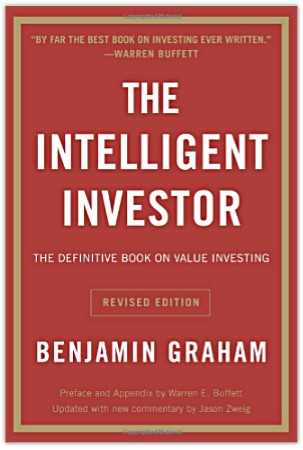
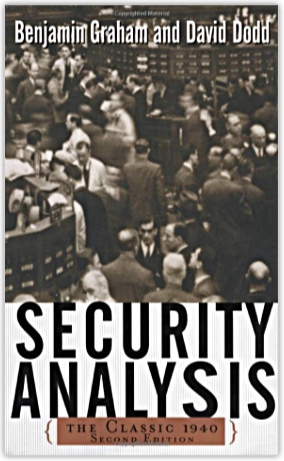
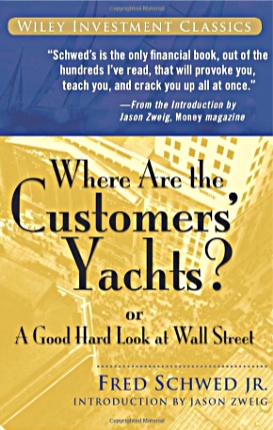
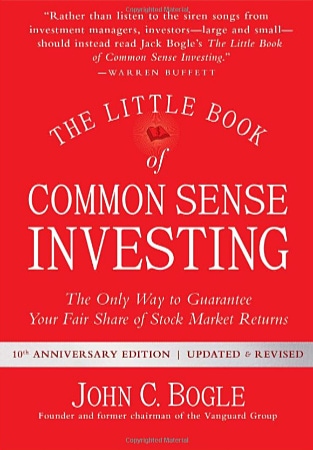
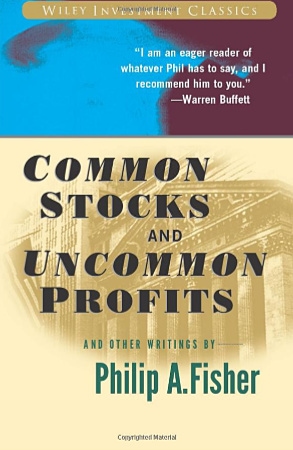
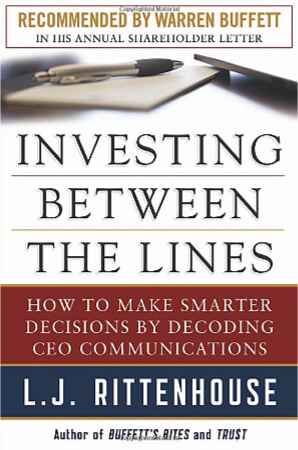
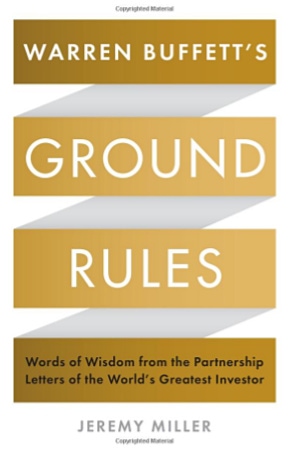
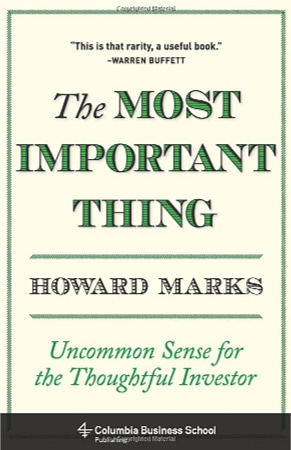
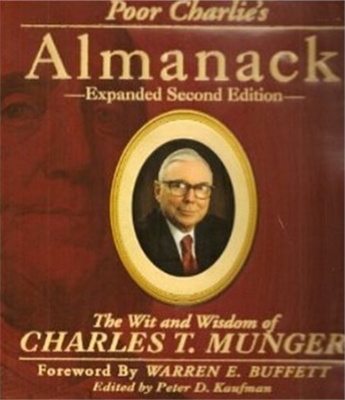
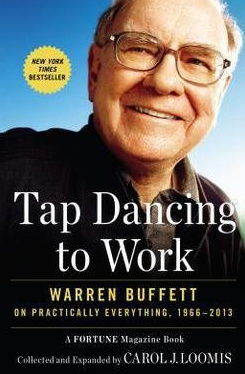
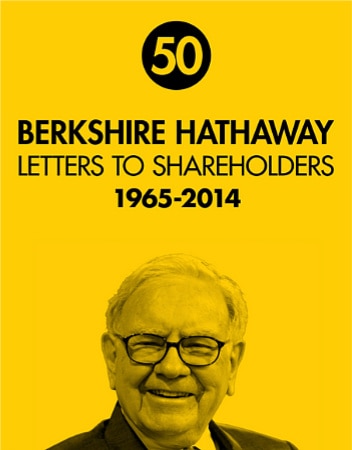
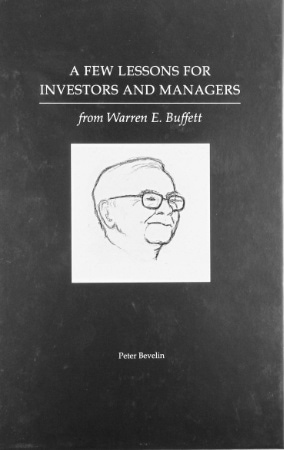
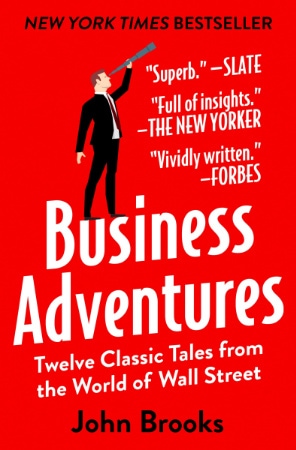
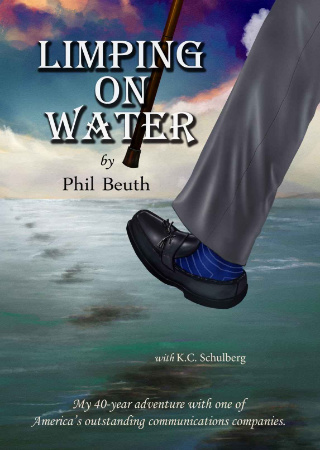
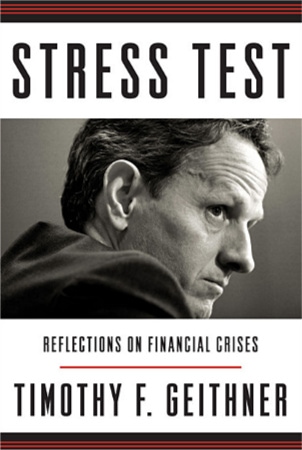
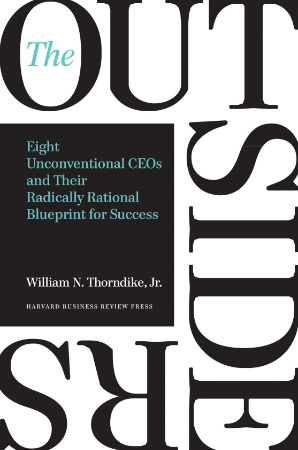
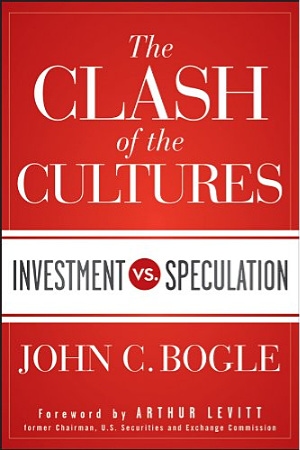
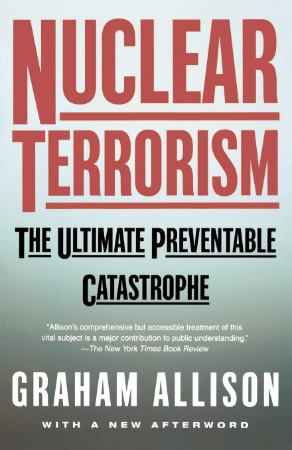
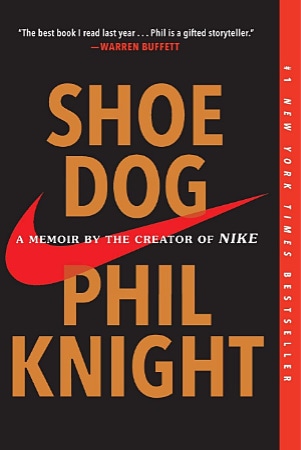
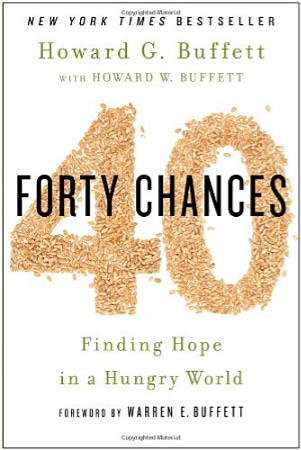

I’ll have to use this list for one of my next book selections too! I’ve read and enjoyed both “Shoe Dog” and “The Little Book of Common Sense Investing.” Thanks for the recommendations! Happy Thanksgiving.
Todd Combs in an interview said Buffett told them to read 500 pages a week.
https://www.cnbc.com/video/2014/03/03/warren-buffetts-secret-read-500-pages-a-week.html
https://www-valuewalk-com.cdn.ampproject.org/v/s/www.valuewalk.com/2018/01/secrets-achieving-warren-buffetts-500-pages-per-week/?amp_js_v=a6&_gsa=1&usqp=mq331AQHKAFQArABIA%3D%3D#aoh=16065574989277&referrer=https%3A%2F%2Fwww.google.com&_tf=From%20%251%24s&share=https%3A%2F%2Fwww.valuewalk.com%2F2018%2F01%2Fsecrets-achieving-warren-buffetts-500-pages-per-week%2F
Great List. I’ve read many of these already but my favorite is the annual letters from Buffet. You can get a real sense of his thinking and his approach to investing to how he explains how the business is working throughout the years. http://www.thecashisking.com